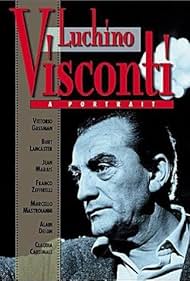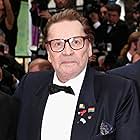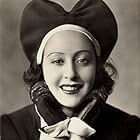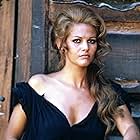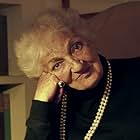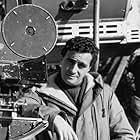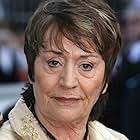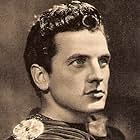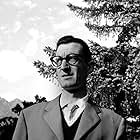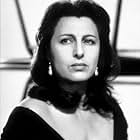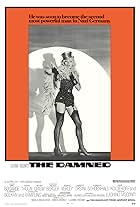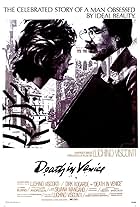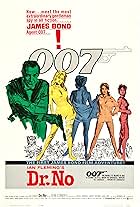Adicionar um enredo no seu idiomaActors who worked with and knew Luchino Visconti are interviewed about his life.Actors who worked with and knew Luchino Visconti are interviewed about his life.Actors who worked with and knew Luchino Visconti are interviewed about his life.
Fotos
Björn Andrésen
- Self
- (cenas de arquivo)
Laura Antonelli
- Self
- (cenas de arquivo)
Tina Apicella
- Self
- (cenas de arquivo)
Helmut Berger
- Self
- (cenas de arquivo)
Dirk Bogarde
- Self
- (cenas de arquivo)
Clara Calamai
- Self
- (cenas de arquivo)
Giuseppe De Santis
- Self
- (cenas de arquivo)
Alain Delon
- Self
- (cenas de arquivo)
Vittorio Gassman
- Self
- (cenas de arquivo)
Annie Girardot
- Self
- (cenas de arquivo)
Massimo Girotti
- Self
- (cenas de arquivo)
Burt Lancaster
- Self
- (cenas de arquivo)
Anna Magnani
- Self
- (cenas de arquivo)
Silvana Mangano
- Self
- (cenas de arquivo)
Enredo
Você sabia?
- ConexõesEdited from Giorni di gloria (1945)
Avaliação em destaque
Having just seen this documentary about Luchino Visconti directed and narrated by Carlo Lizzani and having read the review of the Brazilian commentator, I honestly admit that 60 minutes is too short a time to fully (or at least in a satisfactory manner) execute the life of the artist, of the director, of another 20th century's great Italian. In this respect, we could, without hesitating, state that the great Milan artist does not deserve that little. Yet, I also discovered some good points of the film and let me, for these few minutes, be an advocate speaking for the condensation and simplification.
It is, first of all, a very linear and concrete presentation of the director's life and career, which is very clear and helpful for someone who does not know many facts about Visconti. We all have to realize that many viewers nowadays are not very knowledgeable about classy movies (which is a very sad but true fact, unfortunately). Not many people will want to see a documentary which lasts for two or even three hours because that sort of work is rather for fans of a person than for anyone, just a simple viewer. What you, most probably, want to get is just an image, a general look at a life the knowledge of which will either suffice for you or you will need to develop that knowledge through more detailed biographies. In this case, Lizzani's documentary serves a right purpose to raise interest since the majority of viewers get an idea of who Visconti was, what his life and his career were like.
Second, the film is supplied with short but very interesting additional interviews with celebrities that knew Visconti and worked with him on stage or on screen. Among many, we hear Marcello Mastroianni who complains about Visconti's furious nature; Silvana Mangano who refers to the role of mother in MORTE A VENEZIA; Franco Zeffirelli who remembers the works on the film shot in Sicily LA TERRA TREMA; Massimo Girotti who speaks about difficult but long lasting and personal influence of his role of Gino in OSSESSIONE, Visconti's first movie. I am also glad that there is quite a deep reference to one of the best actresses of Italian cinema and one of the most genuine actresses that have ever lived, Anna Magnani. She was the actress who "directed the directors" and impressed both simple viewers as well as greatest authors and art buffs.
Third, we have a clear presentation of who Visconti was: his aristocratic upbringing in Milan together with his extravagant youth. That is stressed here and seen, a bit in Freudian way, as a source of all that proceeded ("Child is the Father of the Man" said Freud). We have a reference to Visconti's meeting with Gustav Machaty, a Czech director who dared show a naked woman (Hedy Lamarr) in the early 1930s movie; a reference to Renoir who influenced Visconti's left wing direction and Thomas Mann who inspired his later works, particularly MORTE A VENEZIA. Perhaps, it is not very detailed nor profound but, personally, I found it satisfying as hardly (perhaps not yet) a Visconti fan.
I'd recommend you to see this documentary, particularly if you are interested in the heyday of the Italian cinema. This film supplies you with the inevitable general knowledge. Although it is pretty simplified, it omits many facts, it is made with the right intentions that do not distort anything. 7/10
It is, first of all, a very linear and concrete presentation of the director's life and career, which is very clear and helpful for someone who does not know many facts about Visconti. We all have to realize that many viewers nowadays are not very knowledgeable about classy movies (which is a very sad but true fact, unfortunately). Not many people will want to see a documentary which lasts for two or even three hours because that sort of work is rather for fans of a person than for anyone, just a simple viewer. What you, most probably, want to get is just an image, a general look at a life the knowledge of which will either suffice for you or you will need to develop that knowledge through more detailed biographies. In this case, Lizzani's documentary serves a right purpose to raise interest since the majority of viewers get an idea of who Visconti was, what his life and his career were like.
Second, the film is supplied with short but very interesting additional interviews with celebrities that knew Visconti and worked with him on stage or on screen. Among many, we hear Marcello Mastroianni who complains about Visconti's furious nature; Silvana Mangano who refers to the role of mother in MORTE A VENEZIA; Franco Zeffirelli who remembers the works on the film shot in Sicily LA TERRA TREMA; Massimo Girotti who speaks about difficult but long lasting and personal influence of his role of Gino in OSSESSIONE, Visconti's first movie. I am also glad that there is quite a deep reference to one of the best actresses of Italian cinema and one of the most genuine actresses that have ever lived, Anna Magnani. She was the actress who "directed the directors" and impressed both simple viewers as well as greatest authors and art buffs.
Third, we have a clear presentation of who Visconti was: his aristocratic upbringing in Milan together with his extravagant youth. That is stressed here and seen, a bit in Freudian way, as a source of all that proceeded ("Child is the Father of the Man" said Freud). We have a reference to Visconti's meeting with Gustav Machaty, a Czech director who dared show a naked woman (Hedy Lamarr) in the early 1930s movie; a reference to Renoir who influenced Visconti's left wing direction and Thomas Mann who inspired his later works, particularly MORTE A VENEZIA. Perhaps, it is not very detailed nor profound but, personally, I found it satisfying as hardly (perhaps not yet) a Visconti fan.
I'd recommend you to see this documentary, particularly if you are interested in the heyday of the Italian cinema. This film supplies you with the inevitable general knowledge. Although it is pretty simplified, it omits many facts, it is made with the right intentions that do not distort anything. 7/10
- marcin_kukuczka
- 28 de fev. de 2008
- Link permanente
Principais escolhas
Faça login para avaliar e ver a lista de recomendações personalizadas
Detalhes
- Data de lançamento
- Países de origem
- Idioma
- Também conhecido como
- Luchino Visconti. Śmierć starego świata
- Empresas de produção
- Consulte mais créditos da empresa na IMDbPro
- Tempo de duração55 minutos
- Cor
- Mixagem de som
- Proporção
- 1.33 : 1
Contribua para esta página
Sugerir uma alteração ou adicionar conteúdo ausente

Principal brecha
By what name was Luchino Visconti (1999) officially released in Canada in English?
Responda